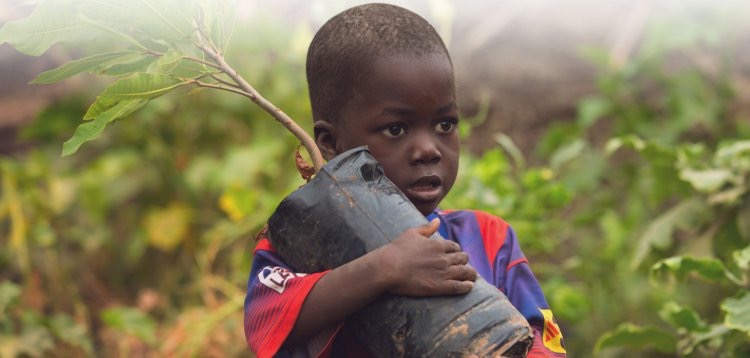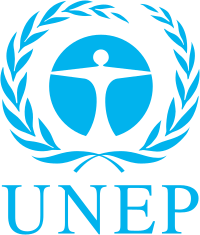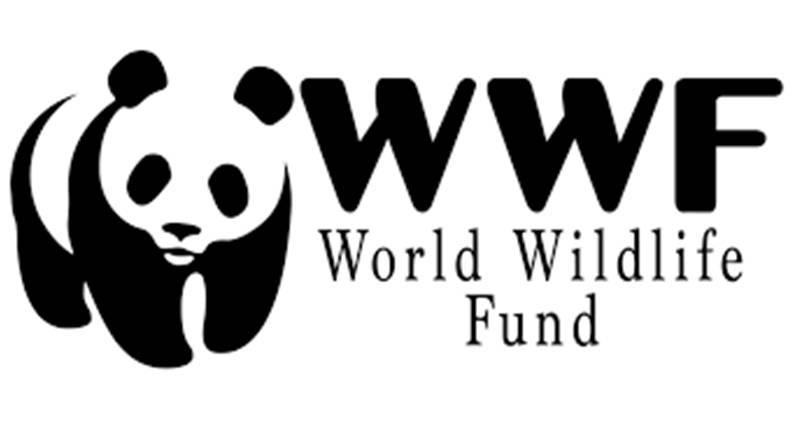Charities that have helped Earth
Hello Everybody!
Hope my blogs are helpful for you in coordinating to save resources for the bright future.
The valuable information that is published here should be circulated continuously so that everyone contributes his/her best for this Earth. I think that your efforts are becoming appreciable and helpful for nature.
So here today , I am going to introduce you about some of the organisations , campaigns, and charities who have been working along for the same. You can donate your help to them and be as a volunteer.

 The IUCN is a the world’s largest global network of government and civil society organisations. Its mission is to provide public, private and non-governmental organisations with the knowledge to enable human progress and economic development, whilst also promoting wildlife conservation. Its firm belief is that these improvements cannot happen independently of each other.
The IUCN is a the world’s largest global network of government and civil society organisations. Its mission is to provide public, private and non-governmental organisations with the knowledge to enable human progress and economic development, whilst also promoting wildlife conservation. Its firm belief is that these improvements cannot happen independently of each other.



Plant a tree to save lives. This is the mindset Trees for the Future operates in. They believe that when rural communities are provided with the education and resources needed to plant trees, sustainable change is created through these beneficial farming techniques. Forest gardens are an opportunity to improve crop yields, increase household income, and bond as a community.

 This is a movement by UN to spread awareness about what I want to tell you i.e. conserving nature, conserving future. The program is created within the framework of the UN system, contributing to the coordination of nature conservation at the system-wide level. The main goal of UNEP is the organization and implementation of measures aimed at protecting and improving the environment for the benefit of present and future generations.
This is a movement by UN to spread awareness about what I want to tell you i.e. conserving nature, conserving future. The program is created within the framework of the UN system, contributing to the coordination of nature conservation at the system-wide level. The main goal of UNEP is the organization and implementation of measures aimed at protecting and improving the environment for the benefit of present and future generations.
I hope my information will be always helpful to you .
Hope my blogs are helpful for you in coordinating to save resources for the bright future.
The valuable information that is published here should be circulated continuously so that everyone contributes his/her best for this Earth. I think that your efforts are becoming appreciable and helpful for nature.
So here today , I am going to introduce you about some of the organisations , campaigns, and charities who have been working along for the same. You can donate your help to them and be as a volunteer.
FOR THE ENDANGERED ANIMALS
Defenders of Wildlife:
Defenders of Wildlife works tirelessly both on the ground and in the courts to protect and restore threatened wildlife. Their work primarily focuses on North America, although it does have a fantastic worldwide reach. Their conservation efforts extend to the polar bear, wolves, sea turtles, sharks, panthers and manatees. They work at a policy level to ensure that endangered animals are protected, but also offer practical advice to people who have to live alongside bears!
Link : https://defenders.org/
International Union for the Conservation of Nature (IUCN):
 The IUCN is a the world’s largest global network of government and civil society organisations. Its mission is to provide public, private and non-governmental organisations with the knowledge to enable human progress and economic development, whilst also promoting wildlife conservation. Its firm belief is that these improvements cannot happen independently of each other.
The IUCN is a the world’s largest global network of government and civil society organisations. Its mission is to provide public, private and non-governmental organisations with the knowledge to enable human progress and economic development, whilst also promoting wildlife conservation. Its firm belief is that these improvements cannot happen independently of each other.
The IUCN is made up of over 1200 member organisations working in 160 countries. The organisations work together to collect data on biodiversity. From this they have gleaned that 40% of the world’s oxygen comes from rainforests, 50% of chemical medicines are based on nature and 100% of our food comes from nature – we need nature to sustain us. Using this knowledge, they train individuals, communities and businesses to exist in the most positive way for the environment, whilst also flourishing financially.
IUCN has categorized animals as endangered species, critically endangered species, and vulnerable specis.
Link: https://www.iucn.org/
World Wildlife Fund:
Of all of our top 17 organisations that help endangered animals, the WWF is probably the best known. Its mission is to conserve nature and reduce the most pressing threats to biodiversity. The scope of their work is huge, covering oceans, forests, wildlife, fresh water, climate and food. They support some of the most endangered animals today – giant pandas, tigers, elephants, gorillas, sea turtles, polar bears, rhinos and whales.
International Rhino Foundation:
The International Rhino Foundation has been championing the survival of the world’s rhinos for over 25 years. It does this primarily through conservation and research, focussing on the essential grassroots support and working within the community. They understand that change must come from the heart, and they focus their efforts on making sure that local people understand the key issues at hand.
Link: https://rhinos.org/
Project AWARE:
Project AWARE works with scuba divers across the world to protect the underwater world. It allows all recreational divers to become immersed in conservation whilst they dive. Divers are encouraged to help remove debris whilst they dive, and report on any anomalies that they experience. So far, Project AWARE has been able to operate in 182 countries. Participants have removed a staggering 1,016,946 items of debris!
FOR OUR PRECIOUS RESOURCES
 TREE Craze Foundation:
TREE Craze Foundation:
TCF approach is to energize the communities by providing necessary knowledge base and inculcating ownership attitude for environmental assets and creating sustainable, institutional framework for channelizing community efforts for environment, building around rivers and Ganga.
To achieve this objective TCF has evolved a three-tier program structure.
To achieve this objective TCF has evolved a three-tier program structure.
These programs are tied around a Continuous Learning and Activity Portal (CLAP)- a storehouse of information and activities aimed at knowledge enhancement and attitude building.


It launched its famous project Namami Gange in India in June2014 which also included the Ganga Quest to spread awareness.
Link: https://www.treecraze.com
Citizens’ Climate Education:
Citizens’ Climate Education believes even an ordinary person has the ability to do something extraordinary. That’s why they give individuals the tools and information they need to raise awareness about climate change solutions. The hope is that by educating politicians, the media, and society at large, real change can be made to solve one of the most pressing environmental issues in the world. To further these dialogues, Citizens’ Climate Education holds conferences that band together NGOs, stakeholders, and anyone interested in learning how to advocate for environmental change.
Citizens’ Climate Education has inspired constituents around the world to take action against climate change. In 2015, with the help of its sister organization, Citizens’ Climate Lobby, and their supporters, they accomplished the following:
- 1,235 meetings held with congressional and other legislative officers
- 3,000 letters to the editor and 535 op-eds published
- 15,000 personal letters written to Congress
- Thousands of outreach events hosted
Trees for the Future:

Plant a tree to save lives. This is the mindset Trees for the Future operates in. They believe that when rural communities are provided with the education and resources needed to plant trees, sustainable change is created through these beneficial farming techniques. Forest gardens are an opportunity to improve crop yields, increase household income, and bond as a community.
Link: https://trees.org/
 BirdLife International:
BirdLife International:
In 1922, British ornithologists founded an organization that specialized in protecting birds and their habitats. More than seventy years later, this society received its present name and became an international organization, which today has one hundred twenty-one branches in various countries of the world which accept student volunteers. Speaking of students, they can get some aid with essays, research proposals and pay for an essay. Interestingly, in 2007, BirdLife International launched a large-scale campaign to save endangered species of birds. The project cost was about 40 million dollars.


 UNESCO — United Nations Educational, Scientific and Cultural Organization:
UNESCO — United Nations Educational, Scientific and Cultural Organization:
It is an organ of the United Nations formed on 24 October 1945 after WW II due to the failure of 'The League of Nations'. Some goals declared by this organization are to contribute to a strengthening of peace and security by expanding cooperation between states and people in such fields as education, science and culture; ensuring justice and respect for the rule of law, universal respect for human rights and fundamental freedoms, as enshrined in the Charter of the United Nations, for all peoples, without distinction as to race, sex, language, orientation or religion.
The organization was established on November 16, 1945, and its headquarters are now located in Paris, France. Currently, the organization has 195 member states, 2 observer states and 10 associate members – territories not responsible for foreign policy. 182 Member States have a permanent mission in Paris, where there are also 4 permanent observers and 9 observation missions of intergovernmental organizations. The organization has more than 60 offices located in different parts of the world.
Among the issues that cover the organization’s activities are the problems of discrimination in education and illiteracy; the study of national cultures and the training of national personnel; problems of social sciences, geology, oceanography and the biosphere. Link: https://en.unesco.org/
UNEP — United Nations Environment Programme:
 This is a movement by UN to spread awareness about what I want to tell you i.e. conserving nature, conserving future. The program is created within the framework of the UN system, contributing to the coordination of nature conservation at the system-wide level. The main goal of UNEP is the organization and implementation of measures aimed at protecting and improving the environment for the benefit of present and future generations.
This is a movement by UN to spread awareness about what I want to tell you i.e. conserving nature, conserving future. The program is created within the framework of the UN system, contributing to the coordination of nature conservation at the system-wide level. The main goal of UNEP is the organization and implementation of measures aimed at protecting and improving the environment for the benefit of present and future generations.
UNEP headquarters are located in Nairobi, Kenya. UNEP also has six large regional offices in various countries. UNEP is responsible for resolving all environmental issues at the global and regional levels.
UNEP activities involve running various projects in the field of the Earth’s atmosphere, marine and terrestrial ecosystems. UNEP also plays a significant role in the development of international conventions in the field of ecology and environmental protection. UNEP often cooperates with states and non-governmental international organizations. The organization also often sponsors and facilitates the implementation of environmental projects.
UNEP’s sphere of interest includes the development of international treaties on issues such as potentially hazardous chemicals, transboundary air pollution and pollution of international navigable channels.
Together with UNEP, The World Meteorological Organization established the Intergovernmental Panel on Climate Change (IPCC) in 1988. UNEP is also one of the co-founders of the Global Environment Facility (GEF).Link: https://www.unenvironment.org/
Dates by the United Nation for memorising the events related to Saving our planet Earth:
| Name | Date |
|---|---|
| Zoo Lovers Day[38][39] | 04-08: April 8 |
| Zero Emissions Day[103] | 09-21: September 21 |
| World Wood Day | 03-21: March 21 |
| World Wildlife Day | 03-03: March 3 |
| World Wetlands Day | 02-02: February 2 |
| World Water Monitoring Day | 09-18: September 18 |
| World Water Day | 03-22: March 22 |
| World Vegan Day | 11-01: November 1 |
| World Turtle Day | 05-23: May 23 |
| World Tuna Day[47][48][49] | 05-02: May 2 |
| World Tapir Day[43][44][45] | 04-27: April 27 |
| World Sparrow Day | 03-20: March 20 |
| World Soil Day[140] | 12-05: December 5 |
| World Sea Turtle Day[62] | 06-16: June 16 |
| World Rivers Day[112] | 09: Last Sunday of September |
| World Rhino Day[104] | 09-22: September 22 |
| World Ranger Day - International Ranger Federation | July 31: 07-31 |
| World Rainforest Day[70][71][72] | 06-22: June 22 |
| World Population Day | 07-11: July 11 |
| World Planting Day[28][29][30] | 03-21: March 21 |
| World Parrot Day[58][59][60] | 05-31: May 31 since 2004 |
| World Pangolin Day[6][7] | Third Saturday of February |
| World Otter Day[57] | 05-27: May 27 |
| World Orangutan Day[87] | 08-19: August 19 |
| World Okapi Day[119][120] | 10-18: October 18 |
| World Oceans Day | 06-08: June 8 |
| World No Tobacco Day | 05-31:May 31 |
| World Nature Conservation Day[80] | 07-28: July 28 |
| World Migratory Bird Day[54] | Second Saturday of May. Second Saturday of May in the U.S. and Canada; Second Saturday of October in Mexico, Central and South America, and the Caribbean. |
| World Meteorological Day | 03-23: March 23 |
| World Lion Day[83] | 08-10: August 10 |
| World Lemur Day[133][134] | 10: Last Friday of October |
| World Hirola Day[84] | 08-12: August 12 |
| World Hippopotamus Day[11][12][13] | 02-15: February 15 |
| World Habitat Day | 10: First Monday of October |
| World Gorilla Day[105][106][107] | 09-24: September 24 |
| World Giraffe Day[64][65][66] | 06-21: June 21 |
| World Frog Day[25][26][27] | 03-20: March 20 |
| World Fisheries Day[135] | 11-21: November 21 |
| World Fish Migration Day | April 21, 2018 |
| World Farm Animals Day[113] | 10-02: October 2 |
| World Environmental Health Day[108] | 09-26: September 26 since 2011 (IFEH)[109] |
| World Environment Day | 06-05: June 5 |
| World Elephant Day | 08-12: August 12 |
| World Donkey Day[53] | 05-08: May 8 |
| World Day to Combat Desertification and Drought | 06-17: June 17 |
| World Croc Day[63] | 06-17: June 17 |
| World Consumer Rights Day | 03-15: March 15 |
| World Cleanup Day[100] | 09: September 21, 2019, Third Saturday in September |
| World Chimpanzee Day[77][78][79] | 07-14: July 14 |
| World Cassowary Day[110][111] | 09-26: September 26 |
| World Camel Day[67][68][69] | 06-22: June 22 |
| World Bonobo Day[8][9][10] | 02-14: February 14 |
| World Bee Day | 05-20: May 20 |
| World Bear Day[32] | March 23: 03-23 |
| World Aquatic Animal Day[5] | 04-03: April 3 |
| World Animal Day | 10-04: October 4 |
| World African Wild Dog Day[88] | 08-26: August 26 |
| Wild Koala Day[51][52] | 05-03: May 3 |
| Taxonomist Appreciation Day[24] | 03-19 : March 19 |
| Sustainability Day[118] | 10: Fourth Wednesday of October |
| Solar Appreciation Day[14][15][16] | Second Friday of March |
| Shark Awareness Day[73][74][75][76] | 07-14: July 14 |
| PARK(ing) Day[97][98][99] | 09: September 20, 2019, Third Friday in September |
| Ozone Action Day | Variable date depending weather conditions |
| National Reptile Awareness Day[124][125] | 10-21: October 21 |
| National Panda Day[20][21][22] | 03-16: March 16 |
| National Honey Bee Day | 08-15: August 15 |
| National Cougar Day[61] | 06-12: June 12 |
| National Cleanup Day[101] | 09: September 21, 2019, Third Saturday in September |
| National Bison Day | 11: First Saturday in November |
| Monkey Day | 12-14: December 14 |
| Manatee Appreciation Day[33][34][35] | 03: Last Wednesday in March |
| Japan Dolphin Day[91][92] | 09-01: September 1 |
| International Zebra Day[2][3][4] | 01-31: January 31 |
| International Wombat Day[126] | 10-22: October 22 |
| International Wolf Day[85][86] | 08-13: August 13 |
| International Whale Shark Day[89][90] | 08-30: August 30 |
| International Vulture Awareness Day[94][95][96] | 09: First Saturday of September |
| International Tiger Day | 07-29: July 29 |
| International Snow Leopard Day[127][128] | 10-23: October 23 |
| International Sloth Day[121][122][123] | 10-20: October 20 |
| International Seal Day[31] | 03-22: March 22 |
| International Red Panda Day[102] | 09: Third Saturday of September |
| International Polar Bear Day | 02-27: February 27 |
| International Mountain Day | 12-11: December 11 |
| International Leopard Day[50] | 05-03: May 3 |
| International Jaguar Day[136][137] | 11-29: November 29 |
| International Hyena Day[46] | 04-27: April 27 |
| International Gibbon Day[130][131][132] | 10-24: October 24 |
| International E-Waste Day[115][116][117] | 10-14: October 14 |
| International Day of Forests | 03-21: March 21 |
| International Day of Climate Action | 10-24: October 24 |
| International Day of Action for Rivers[17] | 03-14: March 14 |
| International Day for the Preservation of the Ozone Layer | 09-16: September 16 |
| International Day for Preventing the Exploitation of the Environment in War and Armed Conflict | 11-06: November 6 |
| International Day for Natural Disaster Reduction | 10-13: October 13 |
| International Day for Biological Diversity (World Biodiversity Day) | 05-22: May 22 |
| International Clouded Leopard Day[81][82] | 08-04: August 4 |
| International Climate Change Day | 06-21: June 21 |
| International Cheetah Day[138][139] | 12-04: December 4 |
| International Beaver Day[36][37] | 04-07: April 7 |
| Greenery Day | 05-04: May 4 in Japan (previously April 29) |
| Green Up Day | 05: First Saturday of May in Vermont |
| Global Wind Day | 06-15: June 15 |
| Global Recycling Day[23] | 03-18: March 18th |
| Freshwater Dolphin Day[129] | 10-24: October 24 |
| European Day of Parks - Europarc Federation[56] | 05-24: May 24 |
| Energy Efficiency Day[114] | 10: First Wednesday in October |
| Endangered Species Day[55] | 05: Third Friday of May |
| eDay - Electronic Waste Day | Variable date, in New Zealand |
| Ecological Debt Day (Earth Overshoot Day) | 09-23: September 23 in 2008, but receding |
| Earth Day | 04-22: April 22[42] |
| Day of Remembrance for all Victims of Chemical Warfare | 04-29: April 29 |
| Coral Triangle Day | 06-09: June 9 |
| Car Free Day | 09-22: September 22 |
| Buzzards Day[18][19] | 03-15: March 15 |
| Bike-to-Work Day | 05: Third Friday of May |
| Bat Appreciation Day[40][41] | 04-17: April 17 |
| Arbor Day | 04-10: April 10 |
| America Recycles Day | 11-15: November 15 |
| Amazon Rainforest Day[93] | 09-05: September 5 |
So bye for now.






Motivated me to protect our earth
ReplyDeleteThanks for your efforts for our nature. Please give some suggestions as well for my website.
DeleteVery motivational and good blog
ReplyDeleteThanks for the appreciation
Delete